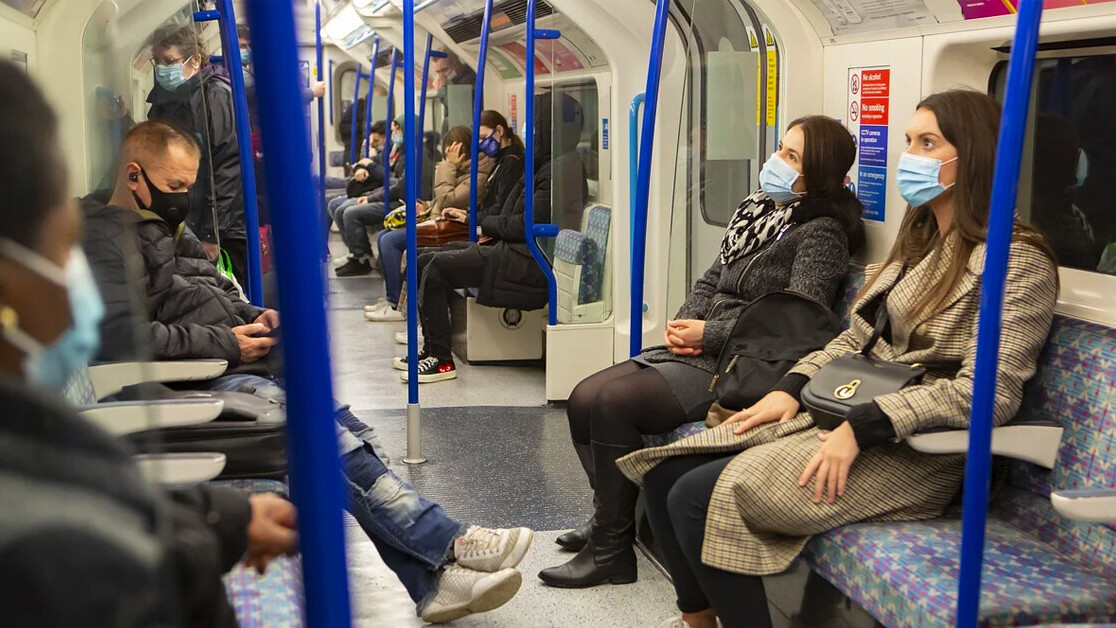This article was originally published by Christopher Carey on Cities Today, the leading news platform on urban mobility and innovation, reaching an international audience of city leaders. For the latest updates follow Cities Today on Twitter, Facebook, LinkedIn, Instagram, and YouTube, or sign up for Cities Today News.
To curb the spread of COVID-19, the French Academy of Medicine – an independent body of leading French doctors and scientists – has called on commuters to “avoid talking or making phone calls” on metros, buses, or anywhere in public where social distancing is not an option.
Masks have been mandatory on public transport in France since May, but concerns about travelers disobeying the rules or removing them to talk on the phone or to others have prompted the call.
“The mandatory wearing of masks on public transport, where social distancing is not possible, should be accompanied by one very simple precaution: avoid talking and making phone calls,” the body said in a statement on Friday.
While it is not the government’s official advisory body, the academy can respond to questions and issue recommendations.
France currently has some of Europe’s strictest lockdown measures, with a curfew in place from 6pm to 6am and restaurants and bars closed since October.
Last week the French government issued a decree banning certain homemade masks being worn in public, saying they do not offer sufficient protection from more contagious COVID-19 variants.
Three types of masks will be recommended under the new rules: surgical, FFP2, and fabric masks made to Category 1 standards.
French Health Minister Olivier Véran said the decree came after recommendations from government health experts but was criticized by the Academy of Medicine which says there is a “lack of scientific proof” that homemade masks do not offer sufficient protection “if worn properly.”
[Read:
Airborne risk
The potential risks posed by talking on public transport have already led some transit agencies to issue recommendations to passengers.
Barcelona’s Transports Metropolitans de Barcelona (TMB) – the company in charge of the city’s metro and buses – has created a campaign urging commuters to remain silent on all networks to stop the spread of COVID-19.
Posters and messages on the public address system of the city’s transport services remind passengers to avoid talking, with similar measures being introduced in La Rioja and the Balearic Islands following recommendations from health experts.
María Cruz Minguillón, a researcher at the Spanish National Research Council (CSIC), told local media that “people shouting or talking on the phone can emit up to fifty times more particles.”
“Many people were afraid [to travel] because it’s difficult to keep a secure distance on public transport, but with measures such as banning eating or drinking, and remaining silent, we reduce the risks,” she added.
The campaign is just a recommendation, however, and non-compliance does not currently lead to any sanctions.
A recent study published in The Royal Society journal found that tiny droplets released while speaking could carry the virus over long distances and potentially linger longer in the air when compared to larger droplets emitted while coughing.
Researchers concluded it was unsafe to stand without a mask two meters away from an infected person who is talking or coughing, with both situations posing an infection risk.

SHIFT is brought to you by Polestar. It’s time to accelerate the shift to sustainable mobility. That is why Polestar combines electric driving with cutting-edge design and thrilling performance. Find out how.
Get the TNW newsletter
Get the most important tech news in your inbox each week.





